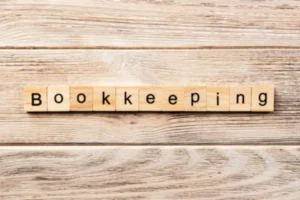Content

Despite what some online critics would have you believe, dropshipping is absolutely not dead. It remains an extremely viable business option and thriving industry in 2021. And, unlike many new businesses, it doesn’t require a significant amount of start-up capital.
In the United States, dropshippers must collect sales tax when they have a sales tax nexus in the buyer’s destination state. Generally speaking, states define a nexus as a physical presence. For a dropshipper, your state likely considers your presence in that state as a nexus.
What is a drop shipment?
Then, Shopify will calculate the tax rates and charge your customer accordingly based on their location. Just like in the USA, dropshippers that reside in EU countries also have to pay income taxes on every profit made throughout the year. If you have nexus in a state, you have to collect taxes and pay them to that state’s government budget. So, if you reside in the US, you’ll probably have to charge a sales tax only from local customers located in the same state. And, if you’re a non-resident living in a completely different country, there’s no nexus and reason to collect a sales tax. Resale exemption certificate procedures are individual to each state.

At NicheDropshipping, we completely understand how confusing it can be to deal with dropshipping taxes, so feel free to reach out if you still have questions. So, if you do have nexus in multiple states, you’ll have to collect taxes from all your customers in those states. So, in this scenario, the sales tax you’d have to charge your NY customer is $2. However, in most countries, income taxes are paid on all profits made regardless of the business nature. Dropshippers who have a physical presence in the USA or sell to US customers are probably already familiar with the term “tax nexus”. According to tax laws, income tax is paid in almost all countries worldwide on any profit you make throughout a calendar year.
Takeaways: Dropshipping Taxes
With drop shipping transactions, the supplier or the retailer can potentially avail themselves to the taxation of the states in which their customers are located. The risk of unintentional availment is high for retailers and especially for suppliers. Drop-shipping will generate drop shipping sales tax a request from your vendors to provide a resale certificate. This will protect the vendor from charging you sales tax as you are selling the product for resale. Unfortunately, there is not just one resale tax certificate to obtain, which will satisfy every vendor.
- In that case, although you couldn’t charge the end-customer a sales tax, the supplier will have to charge you as the dropshipper a sales tax.
- Generally, the first retailer engaged in business in California in the series of drop shipment transactions is liable for the sales tax.
- This is done by providing the supplier with proper resale certificate documentation.
- Drop shipping creates a convoluted web of possible scenarios for who collects sales tax from whom, especially when the buyer, seller, and drop shipper are spread across multiple states.
- XYZ directs 123 to deliver the item to the California consumer.
One way for businesses to make the most out of drop shipping and other innovative solutions is sales tax automation software such as Avalara AvaTax. AvaTax’s accuracy is 100% guaranteed, so you can be sure that you’re getting sales tax right no matter how your products are getting delivered. This means that even for established big stores, they only need to collect and pay sales taxes where their yearly sales numbers are more than $100,000. So, if you’re a new business, you don’t have to worry about this sale tax until you grow big enough and start making huge revenue. First off, while income tax is imposed on your net profit when do dropshipping, sales tax is imposed on the goods/services that you sell.
What Are Resale Certificates or Exemption Certificates?
2) You will need to be a large vendor (the current baseline is doing $100,000+ sales in a single state, or 200+ transactions in a year). To automatically get a 1099-K from Shopify, you have to go over $20,000 in sales or achieve more than 200 transactions. Before July 2021, non-EU residents weren’t obliged to charge VAT for goods below EUR 22. However, the new EU VAT rules abolished this, and now every product is subject to VAT, regardless of the price. Having to register in every single state they are requesting resale documentation in. However, for that great question, it’s best to contact an accountant in Switzerland to see how it will work with the tax when selling in the countries you want to sell to.
Resale certificates are documents that allow dropshippers to buy products without a sales tax since they’re purchased to resell. However, you should know that not all suppliers and vendors will accept resale certificates. For the sake of this article, let’s assume that your dropshipping store does generate a net profit. The answer is the country where you live, and you pay income taxes to your local government. For instance, if you live in the US, you will pay your taxes to the US government.
Products You Should Avoid Dropshipping | Be Careful!
As with all things sales tax, the answer depends on multiple factors, including the locations of all three parties, the taxability of the goods, and where the seller or supplier has nexus . There are “distance selling thresholds,” which dictate whether you charge the tax rate of your home country or the customer’s country. If you are an EU VAT-registered business, and your supplier is also in the EU, then VAT on these B2B purchases is managed through the reverse-charge mechanism. If your business is located outside of the EU, but your supplier is inside the EU, then you probably don’t have to pay VAT. Some states only accept in-state issued certificates, while others accept multi state certificates. Consumption taxes are applied to the purchase of goods and services, and each country chooses which kind to use.

Additionally, doing so correctly allows us to run our eCommerce ventures legally and smoothly. Four types of taxes that we have to pay when dropshipping. While it can seem overwhelming, all these tax obligations become manageable with the guidance of an accountant. Some regions charge higher taxes, and others charge lesser ones. Dropshipping taxes also differ by method of collection and payment. Sales tax is a tax you pay to your state or city on every sale you make.
